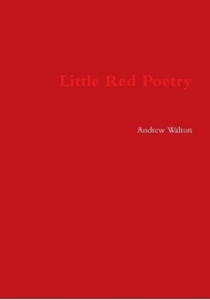This set of poems arose from a book by Penny Walker, exploring Leicester’s resistance to World War One. I performed these as part of the Everybody’s Reading Festival.
Common to the interviews done in preparation for the book, were family silences on the subject of war. Perhaps it was just too difficult a subject to be talked about. The prevailing attitude (completely unhealthy of course) of the British “stiff upper lip” may have played a part – or perhaps words were simply not capable of capturing the horrors of the trenches.
The opening line, “For fifty-seven years”, refers to Harry Patch, who never talked about the war to his late wife, and was 100 before being inspired to pass on an anti-war message to future generations.
Silence
For fifty-seven years, he kept it secret from his wife
A shameful infidelity, a nightmare, a scream of terror.
For words cannot encompass the horror
Cannot convey the conflict.
Unless you were there, you would not understand.
The title of my next poem, “Cat and Mouse”, refers to the treatment, common to both conscientious objectors and suffragettes – of being imprisoned for a short time, then released – only to be recaptured by the authorities. The popularly called “Cat and Mouse Act” enabled the government to remove suffragettes from prison, if they had been on hunger strike, forcibly feed them, then return them to prison. As the war went on, it became more difficult to obtain exemption from the war. Conscientious objectors faced similar treatment, and the opprobrium heaped on them continued, even after the conflict had ended.
Cat and Mouse
We were released,
Asked to sign on
Imprisoned again.
Up before the beak,
The middle-class old duffer,
Deaf to our pleas.
Treated like criminals,
Blacklisted.
After war ended
Still people held grudges.
Life goes on,
We make do.
Where others perished,
We still live.
The white feather
Becomes a white poppy.
Symbol of resistance,
Symbol of pride.
Common reasons for objecting to the war were non-conformist Christian beliefs – the idea that it is never right to kill another human being, as well as socialist beliefs – the idea that the working class should unite against the bosses, and that this struggle must be international. This imperialist war is a war for the aristocrats – so why should we do their dirty work for them? Common to both strands of thought, were rock-solid principles.
“I have been fighting all my life” is a quote from John Flanagan, who was a shop-steward and a member of the Independent Labour Party in Bradford. His grand-daughter now lives in Leicester. When asked why he refused to fight, he replied that he had been fighting all his life, but he refused to kill fellow workers. Often Christian and socialist beliefs went together, and I (an atheist) have tried to combine these outlooks in this poem.
Principles
I will not fight against my fellow man.
This is not an act of cowardice;
I am as patriotic as the next fellow:
But war must be resisted.
Without us, the general’s plans are naught.
We are the ones who have to drive in
The bayonet. Who have to turn against
Common humanity, common decency.
I have been fighting all my life
For decent pay and better conditions.
The trade union banner is my flag.
The bosses are our enemy, not each other.
An injury to one is an injury to all.
Thou shalt not kill.
We were all created in the image of God.
We are all equal.
One of the most enduring images of the First World War is the recruitment poster with Lord Kitchener, “Your country needs YOU”. In this poem, I contrast the glory and camaraderie which many people signed up to war, with the shell-shocked veterans who returned from the front, only to be shunned by polite society. For the ordinary Tommy, there would be no treatment of the psychological effects of the war, and this was only just beginning to be understood.
Kitchener
Kitchener pointed at each of us.
Our friends had signed up,
Some lied about their age to join.
We were young in those days
Eager, idealistic, naïve.
By Christmas it would all be over:
Cut down in the trenches of Passchendaele or Ypres.
Such a waste of life.
The Lonely Ones returned
Not to a heroes’ welcome.
Nomadic – unable to settle, or rest.
Thoughts echoed through their heads
To surface in nightmares.
Ignored by society, shunned.
Past glories, forgotten.
Fingers still point accusingly
At broken men.
If you have enjoyed my poetry on this blog, my new collection, “Little Green Poetry” is now available from Lulu – – £4+P&P (paperback) or £2.50 (for e-book readers)
You can still order copies of my first collection, “Little Red Poetry” from http://www.leftbooks.co.uk or http://www.lulu.com – again for £4 (pb) or £2.50 (as a pdf for e-readers).
I hope you enjoy reading my poems, and, as always, all proceeds will go to help build the fightback against corporate political parties, to build a voice for the millions, not the millionaires.
To find out more about my politics, visit the website of the Committee For A Workers’ International, which is engaged in struggle in around 50 countries worldwide.
Tags: conscientious objectors, everybody's reading, Leicester, non-violence, war, World War One


Leave a comment